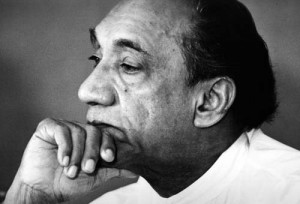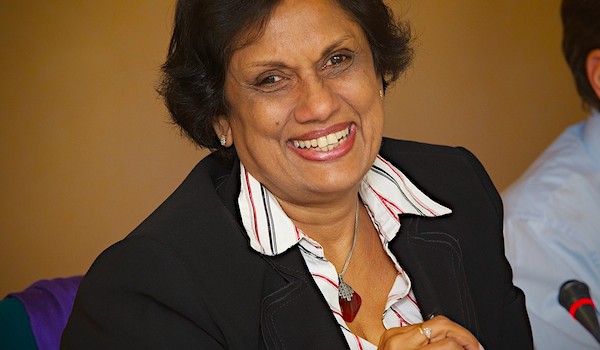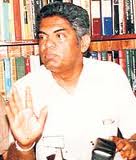Saving the UNP from itself:Is Sri Lanka’s GOP capable of being reborn?
Perpetuating power
When analyzing the mess that United National Party finds itself in today, one cannot ignore a serious but latent feature
of the proportional representation system that was introduced with the 1978 constitution. The prime motive behind the PR system was, according to its author J R Jayewardene, the perpetuation of the UNP in power. If members of Parliament are elected according to the PR system, the UNP being the highest vote taker as a single party, would qualify for the highest number of seats if they secure the highest percentage of the total poll as against other individual parties. This argument had its merits in that as a single political party contesting elections since 1947, the United National Party has been the one party that attracted the highest number of votes in successive elections barring the 1956 landslide victory of the Mahajana Eksath Peramuna led by S W R D Bandaranaike.
SLFP alliances upset the eqaution
However, while the UNP has been fielding candidates as a single political party, all the other left-wing fringe parties have formed a coalition with the next strongest party, the Sri Lanka Freedom Party. Even in 1956 the SLFP joined hands with the next most powerful Party at the time VLSSP led by Phillip Gunawardene. Then in 1960 July they entered into a no-contest pact with the Lanka Sama Samaja Party and the Communist Party. Since then the SLFP never contested as a separate single entity. This upset the equation that JRJ had in mind. Nevertheless, once the UNP routed the opposition in an unprecedented landslide in 1977, it managed to win every election, including the infamous referendum, quite comfortably until 1994. In 1994 it was the People’s Alliance, the SLFP, and all other left-wing parties including the JVP that edged out the UNP narrowly. This happened after the demise of R Premadasa and Lalith Athulathmudali preceded by the unsuccessful impeachment motion and the formation of the DUNF headed by Gamini Dissanayake, Lalith Athulathmudali and G M Premachandra.
CBK galvanised the SLFP
Winning elections when one is in government seems much less difficult than when one is in the opposition. This was
proven by the late Anura Bandaranaike. The Anura Bs were the virtual leaders of the SLFP. From 1977 and since then until 1994 the people chose not to elect his party to power. Enter Chandrika and the entire opposition was galvanized. And CBK was victorious at two successive elections. Whether Anura suffered from the Ranil syndrome or vice versa, one can only speculate at this time, nevertheless, that is not the intent of the writer.
The latent factor
Now I come to the latent factor that I mentioned at the very outset of this piece. The 1977 elections was the last election battle that was fought on the basis of first past the post. In order to get elected the candidate had to win the electorate; each electorate had its own dynamics and idiosyncrasies. Caste, creed, religion, social standard peculiar to the narrow confines of the geography of the electorate mattered considerably and the influence of these factors were not diffused over a larger area such as a district.
In consequence, the intensity and focus of the candidate was greatly enunciated in every campaign. Furthermore, the Party’s appeal to the electorate was mainly based on its national appeal. If the incumbent Party was on a declining scale, the candidate suffered severely as shown in the ’56 and ’77 landslide victories for the MEP and the UNP respectively.
Contest much more grueling under First Past The Post system
In fact the defeat that the SLFP-led coalition suffered in 1977 was much worse than the one the UNP suffered at the hands of SWRD in 1956. Yet the bottom-line is that the grueling contest that a candidate had to endure during the
elections of the first-past the post era was much more combative and competitive, although the arena in which such a battle was fought was much smaller in terms of the number of votes and the length and breadth of the physical area that was covered.
To get into Parliament one had to win the votes from the opponent’s camp. If one considers the casualties of landmark elections such as in ’56 and ’77 one gets a fair idea: in ’56, good candidates like JRJ in Kelaniya, E L Senanayake in Kandy, Paris Perera in Jaela and A Ratnayake in Wattegama were unfortunate casualties of the ’56 debacle while in ’77 Felix Dias in Dompe, Dr. N M Perera in Yatiyantota, Pieter Kuenaman in Colombo Central, Bernard Soysa in Colombo East and T B Ilangaratne in Kolonnawa fell by the way side because the political tide at the national level was overwhelming.
How many FPTP survivors left in the UNP?
How many of such survivors are left in the UNP today? Only Jayawickrama Perera from Katugampola, Joseph Michael Perera from Jaela, and John Amaratunga from Wattala and Ranil Wickramasinghe from Biyagama are the ones who have that unique experience of“winning” an electorate.
PR system has made politicians complacent
Karu Jayasuriya, Sajith Premadasa, Dayasiri Jayasekera, Ranjith Madduma Bandara, Rosy Senanayke, Ravi Karunanayake, Sujeewa Senansinghe or Buddhika Pathirana does not have that experience. The PR system has lulled them into a very complacent mode of electioneering. Whether the majority of the district or the electorate had voted for their Party or not, their focus had been on securing a winnable percentage from the UNP vote.
Government running election factories
The ultimate result of this process has been the decline in focus on the Party and an ever-increasing push towards
obtaining as many preferential votes from their own bank of votes; the bottom-line being the sacrifice of party politics for personal appeal. They got bogged down in a mindset that is extremely harmful for meaningful electioneering. On the other hand, the financial commitment to a well-run campaign is far too short in comparison to the massively funded campaigns run by the government candidates. While the UNP candidates were engaged in conducting election campaigns the government candidates were running election factories, with hundreds of paid girls and boys doing a variety of jobs such as mailing, phone-canvassing etc..
Is the UNP capable of being reborn?
Against such a backdrop, the task of the UNP will be overwhelming, bordering on the impossible. In 1867 Otto Von Bismarck remarked that “politics is the art of the possible”. For the current crop of UNPers it’s fast becoming the art of the impossible. What is critical at present is a change in the mindset of the UNP Member of Parliament. If Karu J and Sajith P honestly desire a change in the party leadership and its direction, they need to address this mindset issue sooner rather than later. A radical change in the thinking that needs to refocus on winning an electorate and thereby securing an electoral victory of the Party is the most pressing need today. If that is tackled in a meaningful way, then the rest will follow as day after night. Is the UNP capable of this fundamental change? Is it capable of being reborn? If so, there is a glimmer of hope. If not, God save the UNP, not from Ranil W and his cronies but from itself.
Perpetuating power
When analyzing the mess that United National Party finds itself in today, one cannot ignore a serious but latent feature
of the proportional representation system that was introduced with the 1978 constitution. The prime motive behind the PR system was, according to its author J R Jayewardene, the perpetuation of the UNP in power. If members of Parliament are elected according to the PR system, the UNP being the highest vote taker as a single party, would qualify for the highest number of seats if they secure the highest percentage of the total poll as against other individual parties. This argument had its merits in that as a single political party contesting elections since 1947, the United National Party has been the one party that attracted the highest number of votes in successive elections barring the 1956 landslide victory of the Mahajana Eksath Peramuna led by S W R D Bandaranaike.
SLFP alliances upset the eqaution
However, while the UNP has been fielding candidates as a single political party, all the other left-wing fringe parties have formed a coalition with the next strongest party, the Sri Lanka Freedom Party. Even in 1956 the SLFP joined hands with the next most powerful Party at the time VLSSP led by Phillip Gunawardene. Then in 1960 July they entered into a no-contest pact with the Lanka Sama Samaja Party and the Communist Party. Since then the SLFP never contested as a separate single entity. This upset the equation that JRJ had in mind. Nevertheless, once the UNP routed the opposition in an unprecedented landslide in 1977, it managed to win every election, including the infamous referendum, quite comfortably until 1994. In 1994 it was the People’s Alliance, the SLFP, and all other left-wing parties including the JVP that edged out the UNP narrowly. This happened after the demise of R Premadasa and Lalith Athulathmudali preceded by the unsuccessful impeachment motion and the formation of the DUNF headed by Gamini Dissanayake, Lalith Athulathmudali and G M Premachandra.
CBK galvanised the SLFP
Winning elections when one is in government seems much less difficult than when one is in the opposition. This was
proven by the late Anura Bandaranaike. The Anura Bs were the virtual leaders of the SLFP. From 1977 and since then until 1994 the people chose not to elect his party to power. Enter Chandrika and the entire opposition was galvanized. And CBK was victorious at two successive elections. Whether Anura suffered from the Ranil syndrome or vice versa, one can only speculate at this time, nevertheless, that is not the intent of the writer.
The latent factor
Now I come to the latent factor that I mentioned at the very outset of this piece. The 1977 elections was the last election battle that was fought on the basis of first past the post. In order to get elected the candidate had to win the electorate; each electorate had its own dynamics and idiosyncrasies. Caste, creed, religion, social standard peculiar to the narrow confines of the geography of the electorate mattered considerably and the influence of these factors were not diffused over a larger area such as a district.
In consequence, the intensity and focus of the candidate was greatly enunciated in every campaign. Furthermore, the Party’s appeal to the electorate was mainly based on its national appeal. If the incumbent Party was on a declining scale, the candidate suffered severely as shown in the ’56 and ’77 landslide victories for the MEP and the UNP respectively.
Contest much more grueling under First Past The Post system
In fact the defeat that the SLFP-led coalition suffered in 1977 was much worse than the one the UNP suffered at the hands of SWRD in 1956. Yet the bottom-line is that the grueling contest that a candidate had to endure during the
elections of the first-past the post era was much more combative and competitive, although the arena in which such a battle was fought was much smaller in terms of the number of votes and the length and breadth of the physical area that was covered.
To get into Parliament one had to win the votes from the opponent’s camp. If one considers the casualties of landmark elections such as in ’56 and ’77 one gets a fair idea: in ’56, good candidates like JRJ in Kelaniya, E L Senanayake in Kandy, Paris Perera in Jaela and A Ratnayake in Wattegama were unfortunate casualties of the ’56 debacle while in ’77 Felix Dias in Dompe, Dr. N M Perera in Yatiyantota, Pieter Kuenaman in Colombo Central, Bernard Soysa in Colombo East and T B Ilangaratne in Kolonnawa fell by the way side because the political tide at the national level was overwhelming.
How many FPTP survivors left in the UNP?
How many of such survivors are left in the UNP today? Only Jayawickrama Perera from Katugampola, Joseph Michael Perera from Jaela, and John Amaratunga from Wattala and Ranil Wickramasinghe from Biyagama are the ones who have that unique experience of“winning” an electorate.
PR system has made politicians complacent
Karu Jayasuriya, Sajith Premadasa, Dayasiri Jayasekera, Ranjith Madduma Bandara, Rosy Senanayke, Ravi Karunanayake, Sujeewa Senansinghe or Buddhika Pathirana does not have that experience. The PR system has lulled them into a very complacent mode of electioneering. Whether the majority of the district or the electorate had voted for their Party or not, their focus had been on securing a winnable percentage from the UNP vote.
Government running election factories
The ultimate result of this process has been the decline in focus on the Party and an ever-increasing push towards
obtaining as many preferential votes from their own bank of votes; the bottom-line being the sacrifice of party politics for personal appeal. They got bogged down in a mindset that is extremely harmful for meaningful electioneering. On the other hand, the financial commitment to a well-run campaign is far too short in comparison to the massively funded campaigns run by the government candidates. While the UNP candidates were engaged in conducting election campaigns the government candidates were running election factories, with hundreds of paid girls and boys doing a variety of jobs such as mailing, phone-canvassing etc..
Is the UNP capable of being reborn?
Against such a backdrop, the task of the UNP will be overwhelming, bordering on the impossible. In 1867 Otto Von Bismarck remarked that “politics is the art of the possible”. For the current crop of UNPers it’s fast becoming the art of the impossible. What is critical at present is a change in the mindset of the UNP Member of Parliament. If Karu J and Sajith P honestly desire a change in the party leadership and its direction, they need to address this mindset issue sooner rather than later. A radical change in the thinking that needs to refocus on winning an electorate and thereby securing an electoral victory of the Party is the most pressing need today. If that is tackled in a meaningful way, then the rest will follow as day after night. Is the UNP capable of this fundamental change? Is it capable of being reborn? If so, there is a glimmer of hope. If not, God save the UNP, not from Ranil W and his cronies but from itself.




